Notice: Undefined index: banner_ad_width in /home/ayekooto/public_html/wp-content/plugins/quick-adsense-reloaded/includes/render-ad-functions.php on line 359
Notice: Undefined index: image_width in /home/ayekooto/public_html/wp-content/plugins/quick-adsense-reloaded/includes/render-ad-functions.php on line 359
Notice: Undefined index: banner_ad_height in /home/ayekooto/public_html/wp-content/plugins/quick-adsense-reloaded/includes/render-ad-functions.php on line 360
Notice: Undefined index: image_height in /home/ayekooto/public_html/wp-content/plugins/quick-adsense-reloaded/includes/render-ad-functions.php on line 360
Honey as a natural and beneficial sweetener with various health and skincare benefits. And the potential risks, pitfalls associated with excessive consumption or misuse.
By; Peace Adisa
Honey is a sweet, viscous food substance produced by bees from the nectar of flowers. It has been used by humans for thousands of years as a sweetener and for its medicinal properties.
The type of flowers used to extract the nectar determines the color, flavor, and texture of the honey. Here are some types of honey:
Raw Honey: 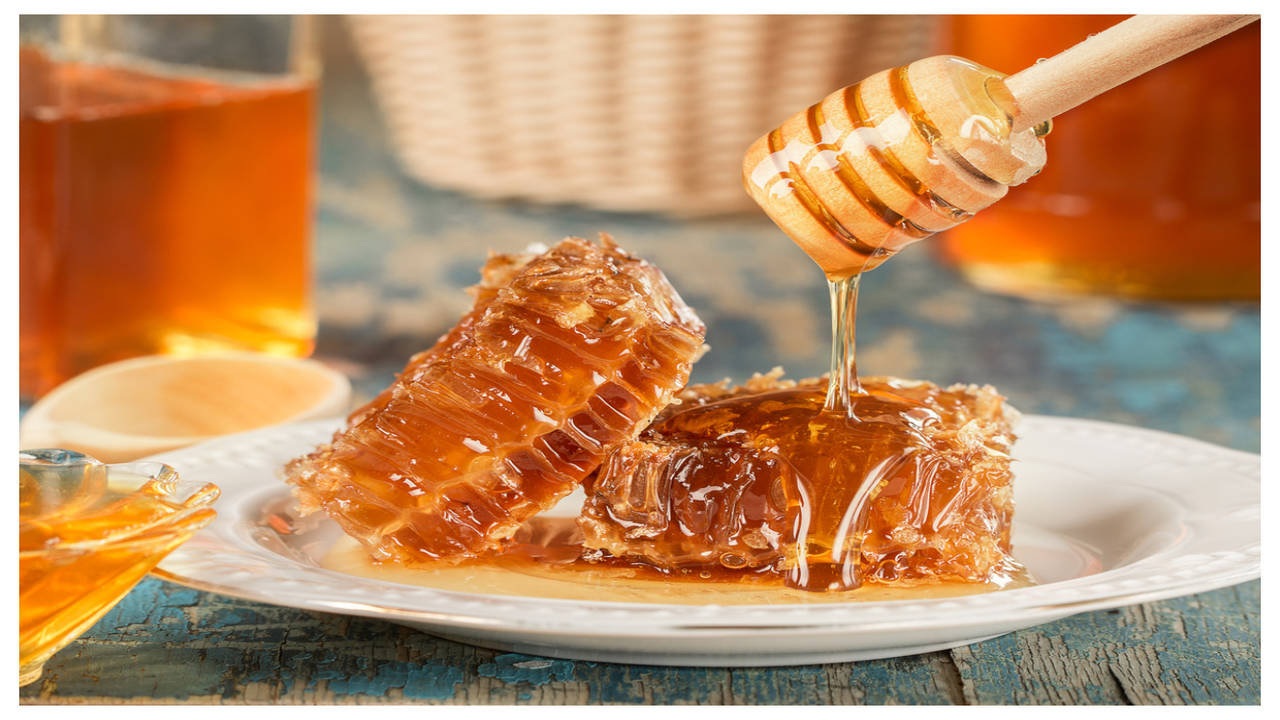
This is honey that has not been pasteurized or filtered, preserving its natural enzymes and nutrients. It may appear cloudy or contain bits of beeswax and pollen.
Acacia honey: 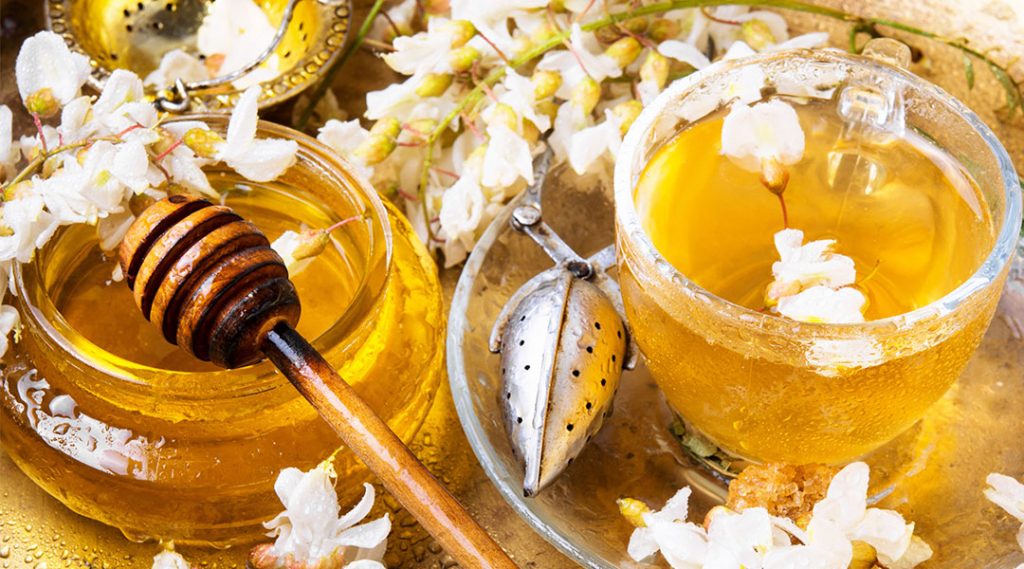
Light-colored and mild-flavored, often used as a sweetener. Produced from the nectar of the black locust tree.
Manuka Honey:

Originating from New Zealand, it is known for its antibacterial properties. It is often used in wound care and skincare products.
Clover honey:
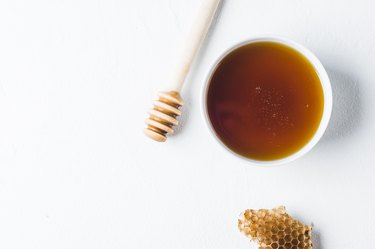
One of the most common types of honey, clover honey, comes from the nectar of clover plants. It has a mild, sweet flavor and is widely available.
Buckwheat honey: 
Dark in color and strong in flavor, buckwheat honey is produced from the nectar of buckwheat flowers. It is rich in antioxidants and is often used as a natural remedy for coughs and sore throats.
Orange Blossom Honey:

This honey comes from the nectar of orange blossom flowers and has a citrusy aroma and flavor. It is popular in deserts and as a topping for yoghurt and toast.
Lavender honey:

Made from the nectar of lavender flowers, lavender honey has a delicate floral flavor and aroma. It pairs well with cheese, and it is often used in baking.
Eucalyptus honey:

Produced from the nectar of eucalyptus trees, this honey has a slightly medicinal flavor and is often used in throat lozenges and cough syrups.
Wildflower honey:
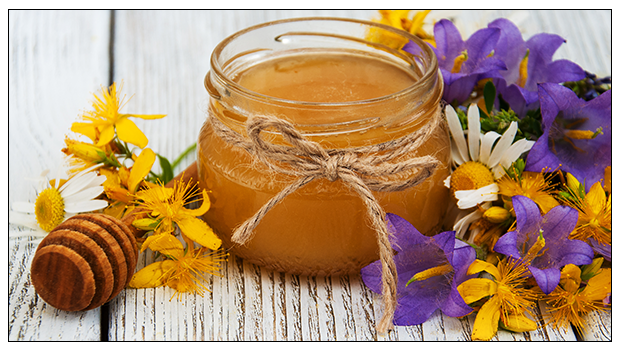
Made from the nectar of various wildflowers and can vary in color, flavor, and aroma depending on the types of flowers the bees visited. It is often used as a general-purpose honey for cooking and baking.
Honey has been studied for its various effects on health, skincare, and overall well-being. Here are some of the potential effects and benefits of honey:
Nutritional Effects
- Natural Sweetener: Honey is a healthier alternative to refined sugar as it has a lower glycemic index and contains natural sugars like fructose and glucose.
- Vitamins and Minerals: While honey is not a significant source of vitamins and minerals, it does contain small amounts of nutrients like vitamin C, calcium, and iron.
Health Effects
- Antibacterial Properties: Honey has natural antibacterial properties due to its high sugar content, low pH, and the presence of hydrogen peroxide and other compounds. It has been used traditionally to treat wounds and infections.
- Antioxidant Activity: Honey contains antioxidants such as phenols and enzymes that help neutralize free radicals in the body, which can reduce oxidative stress and inflammation.
- Wound Healing: Honey has been shown to promote wound healing by creating a moist environment, stimulating tissue regeneration, and reducing inflammation and infection.
- Cough and Sore Throat Relief: Honey can help soothe a cough or sore throat by coating the throat and reducing irritation. It is often used in natural remedies and cough syrups.
- Digestive Health: Some studies suggest that honey may help improve digestive issues such as diarrhea and stomach ulcers. Its antibacterial and anti-inflammatory properties may play a role in supporting gut health.
- Antiviral Properties: Certain types of honey, such as Manuka honey, have been found to have antiviral properties and may be effective against viruses like influenza and herpes simplex.
Skincare Effects
- Moisturizing: Honey is a natural humectant, meaning it draws moisture from the air into the skin. This can help hydrate and moisturize dry or damaged skin.
- Anti-Aging: The antioxidants in honey can help combat free radical damage, which is a major contributor to skin aging. Honey’s moisturizing properties can also help improve skin elasticity and reduce the appearance of fine lines and wrinkles.
- Acne Treatment: Honey has antibacterial and anti-inflammatory properties that can help reduce acne-causing bacteria and inflammation. It can be used as a spot treatment or as part of a face mask to help clear up breakouts.
Consuming too much honey can have several potential negative effects on your health, despite its many benefits when consumed in moderation. Here are some of the potential risks and side effects of consuming excessive amounts of honey:
Health Risks
- Weight Gain: Honey is high in calories and natural sugars like fructose and glucose. Consuming large quantities of honey regularly without balancing it with other nutrients and physical activity can lead to weight gain and obesity.
- Blood Sugar Imbalance: While honey has a lower glycemic index compared to refined sugar, consuming excessive amounts can still cause spikes in blood sugar levels. This can be particularly concerning for people with diabetes or insulin resistance.
- Dental Health Issues: The high sugar content in honey can contribute to tooth decay and cavities if consumed in excess. It’s essential to practice good oral hygiene and limit the frequency of consuming honey to protect dental health.
- Digestive Discomfort: Some people may experience digestive issues like bloating, gas, diarrhea, or stomach cramps when consuming large amounts of honey, especially if they have a sensitive digestive system or underlying digestive conditions.
- Allergic Reactions: Although rare, some individuals may develop allergic reactions to honey or bee-related products. Symptoms can range from mild to severe and may include itching, swelling, hives, or anaphylaxis in severe cases.
- Risk of Contamination: Raw or unpasteurized honey may contain harmful bacteria like Clostridium botulinum, which can cause botulism, a rare but serious illness. While the risk is low, consuming excessive amounts of raw honey increases the risk of bacterial contamination.
Precautions
-
- Moderation: Like any sweetener or food high in sugar, honey should be consumed in moderation as part of a balanced diet to minimize the risk of adverse health effects.
- Consultation: If you have underlying health conditions like diabetes, obesity, or digestive issues, it’s essential to consult with a healthcare professional or registered dietitian before consuming honey regularly.
- Quality: Opt for high-quality, organic honey when possible and avoid honey that has been overly processed or mixed with additives and preservatives.


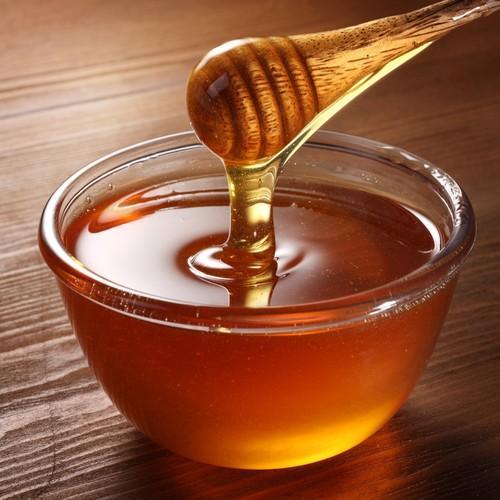
Comment here